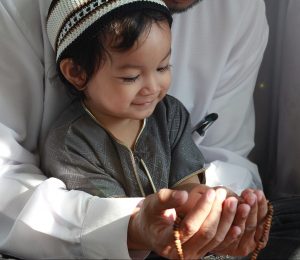
A child’s transition from their birth home to foster care is traumatic as is. It is ideal to minimize its difficulty by ensuring that they are allocated homes with familiar and healthy environments and values. A child’s stable sense of identity helps them feel home, contributing to their mental, spiritual and as a result, physical health in a positive manner.
While we urge Muslim foster parents to be flexible in receiving foster children of all backgrounds, it is worthwhile to highlight the needs of Muslim foster children, to assist them in the most fitting manner. One may wonder how the needs of a Muslim children significantly differ from the needs of those who are non-Muslim. While there is immense diversity in the Muslim community, the fundamental understanding of the ways most Muslims practice the faith overlaps in many areas. Aspects of daily routine ranging from eating halal food and going to the mosque to less frequent events such as participating in Eid festives are common life experiences. Children staying in foster care for longer phases of time would require support in the growing of their faith. Age-appropriate guidance and potentially, leading by example are best when evolving in the understanding and practice of Islam. Taking the preceding points into consideration will enable youth to find comfort when performing practices of their religion and culture.
There are foster programs that provide excellent training services for non-Muslim foster families to cater to the needs of Muslim foster children. While this forms one solution to the dilemma, a more immediate and potentially, more effective approach is providing a pre-existing environment of familiarity. A sense of relatability with the practices of a household positively contributes to the sense of belonging to youth and all in all, enhances their foster care experience. Help us provide vulnerable foster children with religiously and culturally-sensitive care today.

Recent Comments